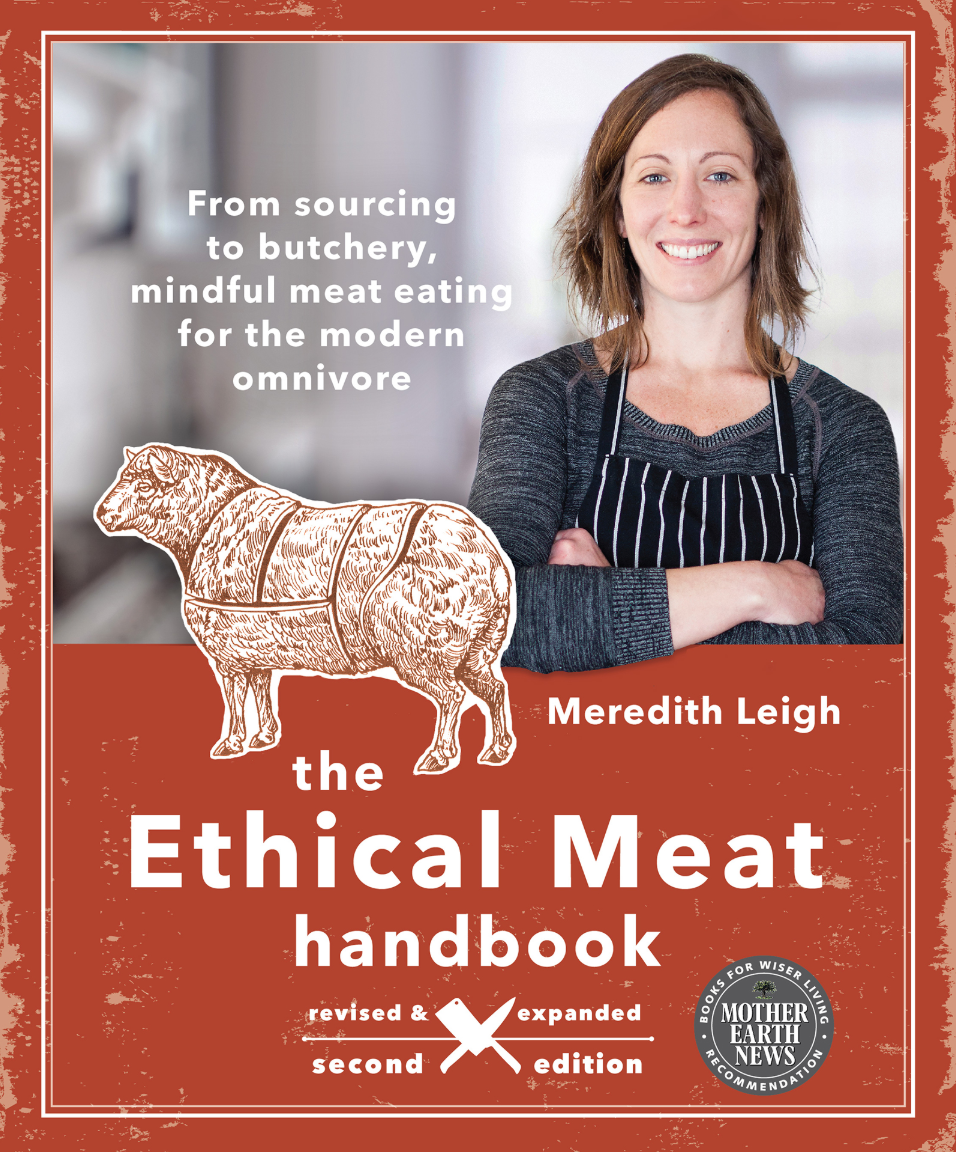
Ethical Meat is meat from an animal that had a good life, a good death, a good butcher, and a good cook.
Ethical Meat is a movement that seeks to repair entire regional meat supply chains, and much work is underway by brave hardworking farmers, butchers, processors, chefs and cooks.
Working to create the capacity for ethical meat has been a speciality for Meredith for the past 20 years. As a former vegan turned livestock farmer, owner of a butcher shop, restaurateur, non-profit executive, mother, educator, and writer, she has vast expertise in the systemic as well as granular details of good meat production. From pasture-based grazing systems to processing facilities, to butchery and meat curing, to policy interventions, the work being done to create better, de-centralized meat systems is vast, worthy, and ongoing.
Ethical Meat is based on a belief that the people who have the greatest impact on the lives and deaths of animals are the people who eat meat, and not the people who don’t.
This doesn’t mean that the decision to NOT eat meat isn’t a valid choice for people who are concerned about the planet, animal welfare, or their emotional boundary. Ethical Meat is the acknowledgement that vegetarianism and veganism isn’t the best choice for everyone, that animals are needed to balance agricultural ecosystems, and that multiple approaches are needed to address climate catastrophe, while still feeding people healthfully.

Ethical meat depends on whole-ecosystem thinking that lends itself to new ways of farming, cooking, and eating.
For those looking to source better meat for their families, non-meat eaters who are opening to the amazing health benefits of grass-fed and pastured animal products, and chefs or other business owners looking to get involved, there are many, hopeful entry points.
Ethical Meat is a movement in pursuit of:
Thrifty and delicious use of the entire animal, and re-education around whole animal utilization and cooking methods
A reviving of the art of butchery, not only at the professional level but at the home scale
Honoring and practicing the art of meat curing or charcuterie
Healthy, thriving farms and farmers
Adaptive genetics assistance for farmers so that animals can thrive in outdoor-based systems again
Food freedom and cooperation to open bottlenecks in meat processing, and to allow access to pure animal products, like raw milk
Community-building and mutual aid to increase access to healthful, well-raised meats
Political action to interrupt corporate control of the meat supply and to redirect subsidization of industrial agriculture
Renovating infrastructure
Healing land
Dissolving myths about all meat being bad for health and bad for the Earth, and clarifying that HOW animals are raised and treated is fundamental to their benefit for human and environmental health
Ethical Meat is real, delicious, attainable, and vital to concerns of food freedom, climate crisis, rising public health concerns, and ecological biodiversity.
It isn’t the responsibility of farmers alone.
